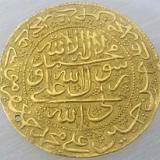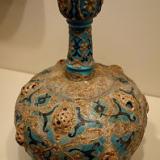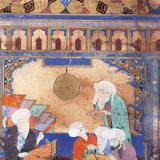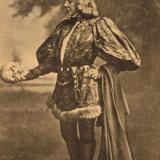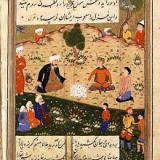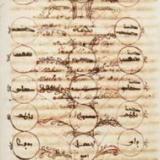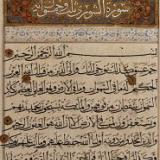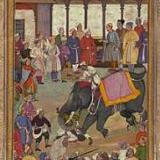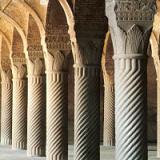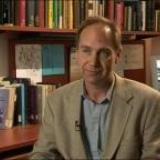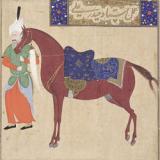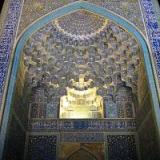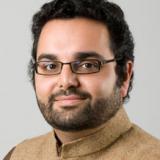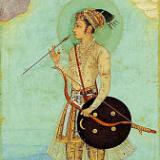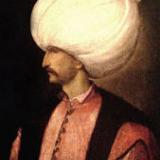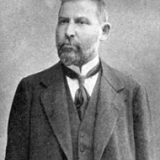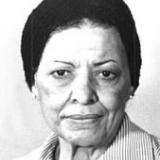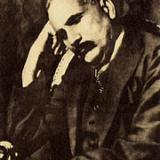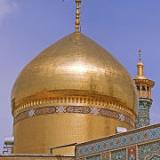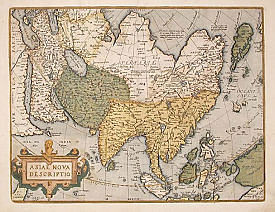The Eastern Traditions
This series brings to an end our look at philosophy in the Islamic world, beginning with influential thinkers of the twelfth century like Fakhr al-Dīn al-Rāzī and Suhrawardī, focusing on their legacy in the Eastern realms of central Asia and Persia, moving on to the Ottoman, Safavid and Mughal empires, and ending with developments in twentieth century philosophy. These centuries are often dismissed as a time of intellectual and scientific decline in Islamic civilization, but it was in fact a time of remarkable achievement in fields like logic and astronomy as well as the various disciplines of philosophy. Throughout, Avicenna looms over the tradition, or rather traditions, with the so-called "Peripatetic" or Avicennan style of thought interacting with Sufism, Islamic theology (kalām) and Illuminationism, as made clear in the synthesis of the Safavid philosopher Mullā Ṣadrā. Interviews with Mohammed Rustom, Rob Wisnovsky, Sajjad Rizvi and Anke von Kügelgen.
Peter would like to thank a number of scholars for their invaluable input on this under-studied period of philosophy, including Heidrun Eichner, Frank Griffel, Jan-Peter Hartung, Christof Neumann, Reza Pourjavady, Mohammed Rustom, Sajjad Rizvi, and Riccardo Strobino.
A book version of these podcasts is available from Oxford University Press.
• P. Adamson, Philosophy in the Islamic World: A Very Short Introduction (Oxford: 2015).
• P. Adamson (ed.), In the Age of Averroes: Arabic Philosophy in the Sixth/Twelfth Century (London: 2011).
• P. Adamson and F. Benevich, The Heirs of Avicenna: Philosophy in the Islamic East, 12th-13th Centuries. Metaphysics and Theology (Leiden: 2023). [open access]
• S.F. Dale, The Muslim Empires of the Ottomans, Safavids, and Mughals (Cambridge: 2010).
• G. Endress, “Reading Avicenna in the Madrasa: Intellectual Genealogies and Chains of Transmission of Philosophy and the Sciences in the Islamic East,” in J.E. Montgomery (ed.), Arabic Theology, Arabic Philosophy: From the Many to the One(Leuven: 2006), 371-422.
• D. Gutas, “The Heritage of Avicenna: the Golden Age of Arabic Philosophy, 900-ca.1350,” in J. Janssens and D. De Smet (eds), Avicenna and his Heritage (Leuven: 2002).
• F. Griffel, The Formation of Post-Classical Philosophy in Islam (Oxford: 2021).
• J. Kaukua, Self-Awareness in Islamic Philosophy: Avicenna and Beyond (Cambridge: 2015).
• Y.T. Langermann (ed.), Avicenna and His Legacy: a Golden Age of Science and Philosophy (Turnhout: 2009).
• S.H. Nasr and M. Aminrazavi (eds), An Anthology of Philosophy in Persia, vol.4: From the School of Illumination to Philosophical Mysticism (New York: 2012).
• S.H. Nasr and O. Leaman (eds), History of Islamic Philosophy (London: 1996).
• F. Robinson, “Ottomans-Safavids-Mughals: Shared Knowledge and Connective Systems,” Journal of Islamic Studies 8 (1997), 151-84.
• S. Schmidtke (ed.), The Oxford Handbook of Islamic Theology (Oxford: 2016).
• A. Shihadeh, “From al-Ghazālī to al-Rāzī: 6th/12th Century Developments in Muslim Philosophical Theology,” Arabic Sciences and Philosophy 15 (2005), 141-79.
• H. Ziai, “Recent Trends in Arabic and Persian Philosophy,” in P. Adamson and R.C. Taylor (eds), The Cambridge Companion to Arabic Philosophy (Cambridge: 2005).
Posted on
An introduction to later developments in philosophical theology, sufism, and Illuminationism, focusing on the reception and critique of Avicenna.
Posted on
Abū l-Barakāt al-Baghdādī makes up his own mind about physics and the soul, and along the way inaugurates a new style of doing philosophy.
Posted on
The hugely influential Fakhr al-Dīn al-Rāzī weaves Avicenna and Islamic theology into complex dialectical treatments of time, God, the soul, and ethics.
Posted on
Suhrawardī, founder of the Illuminationist (ishrāqī) tradition, proposes a metaphysics of light on the basis of his theory of knowledge by presence.
Posted on
The Illuminationists carry on Suhrawardī’s critique of “Peripatetic” philosophy and wonder if they will be reborn as giraffes.
Posted on
Naṣīr al-Dīn al-Ṭūsī’s controversial career sees him adopt and then abandon Ismā'īlism, team up with the Mongols, and offer a staunch defense of Avicenna.
Posted on
Avicenna’s distinction between essence and existence triggers a running debate among philosophers and theologians.
Posted on
The Persian poet Rūmī and mystical philosopher al-Qūnawī carry on the legacy of Sufism.
Posted on
Peter is joined by Mohammed Rustom in a discussion about Sufi authors including Ibn 'Arabī, al-Qūnawī, and Rūmī.
Posted on
Logicians ply their trade across a millennium of Islamic history, considering such issues as the status of logic itself and the Liar Paradox.
Posted on
The controversial jurist Ibn Taymiyya sets forth an originalist theory of law and a searching criticism of the philosophers’ logic.
Posted on
Philosophy and science survive and even thrive through the coming of the Mongols.
Posted on
Ill-tempered debates in early modern Iran, as we examine the rivalry between Dawānī and the Dashtakīs at Shīrāz.
Posted on
Robert Wisnovsky joins Peter to discuss the enormous body of unstudied philosophical commentaries in the later Eastern Islamic world.
Posted on
Philosophy in Safavid Iran, and a look back at earlier philosophy among Shiites.
Posted on
Mullā Ṣadrā, the greatest thinker of early modern Iran, unveils a radical new understanding of existence.
Posted on
Mullā Ṣadrā proposes that all things are like sharks: in constant motion.
Posted on
Sajjad Rizvi talks to Peter about Mullā Ṣadrā's views on eternity, God's knowledge and the afterlife.
Posted on
Ideas spread to Mughal India from Iran, and prince Dārā Shikūh seeks to unite the wisdom of the Upanishads with the Koran.
Posted on
Kātib Çelebi defends cigarettes and coffee and Khojozāda wins a prize for evaluating the Incoherence of the Philosophers, along with several other philosophical and religious debates in the Ottoman empire.
Posted on
18th and 19th century intellectuals in India and the Ottoman empire, from Shāh Walī Allāhto the Young Turks, continue Islamic traditions and grapple with European science.
Posted on
Fatema Mernissi and others challenge the long-standing (but not complete) exclusion of women from the intellectual traditions of Islam.
Posted on
Muḥammad 'Abdūh and Muḥammad Iqbāl challenge colonialism and the traditional religious scholars of Islam.
Posted on
From Sabzawārī in the 19th century to Seyyed Hossein Nasr today, Iranian thinkers promote and respond to the thought of Mullā Ṣadrā.
Posted on
Anke von Kügelgen joins Peter to discuss developments over the last century or so, including attitudes towards past thinkers like Avicenna, Averroes and Ibn Taymiyya.




